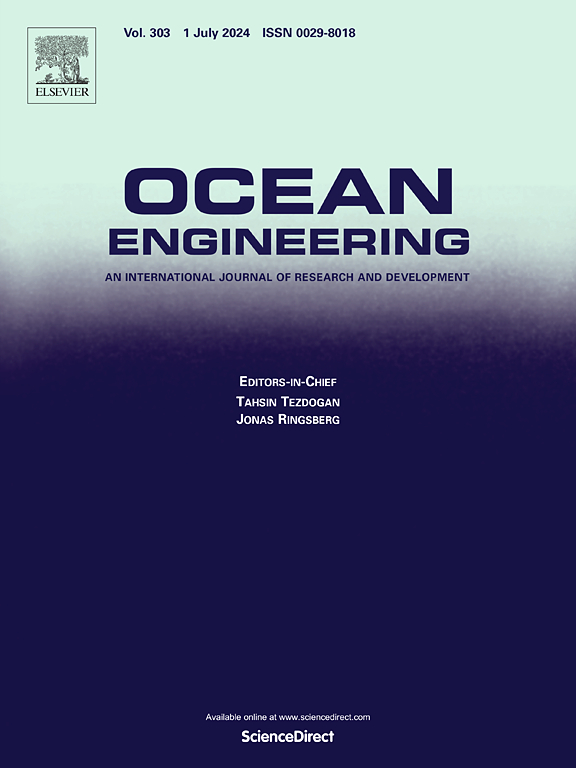迈向混合动力船舶的智能能源管理:预测和优化太阳能、风能和柴油能源
IF 5.5
2区 工程技术
Q1 ENGINEERING, CIVIL
引用次数: 0
摘要
随着全球能源需求的不断增长和对碳排放的日益关注,混合动力船舶已成为减少海上运输对环境影响的一种有前景的解决方案。然而,船舶能源的有效管理,特别是风能和太阳能等可再生能源的优化利用,以及柴油机的运行,仍然是一个未解决的挑战。本研究提出了一个综合框架,利用神经网络模型和进化多任务优化集成技术(NN-EMTO-A)来预测和优化混合动力船舶的能源使用,重点关注海上航行过程中的实时运行状况。该方法结合了关键的环境因素——云量、风速、温度、太阳能的风向和风能预测的船舶位置——以及柴油发动机的效率。通过将这些变量输入NN-EMTO-A,系统预测混合动力船舶最有效的能源使用。实验结果表明,NN-EMTO-A能准确预测能量输出,并能根据不同的海况自适应选择最优能量。同时,储能系统的效率水平为97.82%,综合效率为76.52%。在预测范围内,风能的预测效率达到92.43%,为提高混合动力船舶的能源效率提供了一种新颖而有前景的解决方案,对可持续的海洋能源管理具有重要意义。本文章由计算机程序翻译,如有差异,请以英文原文为准。
Towards intelligent energy management in hybrid ships: Predicting and optimizing solar, wind, and diesel energy
With the continuous growth of global energy demand and the increasing concern over carbon emissions, hybrid vessels have become a promising solution for reducing the environmental impact of maritime transportation. However, the effective management of ship energy, especially the optimal utilization of renewable energy sources such as wind and solar power, as well as the operation of diesel engines, remains an unresolved challenge. This study proposes a comprehensive framework that utilizes neural network models and the integrated technology of evolutionary multi-task optimization (NN-EMTO-A) to predict and optimize the energy usage of hybrid vessels, with a focus on the real-time operating conditions during maritime navigation. The proposed method combines key environmental factors - cloud cover, wind speed, temperature, wind direction of solar energy and the position of ships predicted by wind energy - as well as the efficiency of diesel engines over time. By inputting these variables into NN-EMTO-A, the system predicts the most efficient energy usage of hybrid ships. The experimental results show that NN-EMTO-A can accurately predict energy output and adaptively select the optimal energy according to different sea conditions. Meanwhile, the efficiency level of the energy storage system is 97.82 %, and the comprehensive efficiency is 76.52 %. Within the predicted range, the predicted efficiency of wind energy reaches 92.43 %, This research provides a novel and promising solution for improving the energy efficiency of hybrid ships, which is of great significance for sustainable Marine energy management.
求助全文
通过发布文献求助,成功后即可免费获取论文全文。
去求助
来源期刊

Ocean Engineering
工程技术-工程:大洋
CiteScore
7.30
自引率
34.00%
发文量
2379
审稿时长
8.1 months
期刊介绍:
Ocean Engineering provides a medium for the publication of original research and development work in the field of ocean engineering. Ocean Engineering seeks papers in the following topics.
 求助内容:
求助内容: 应助结果提醒方式:
应助结果提醒方式:


